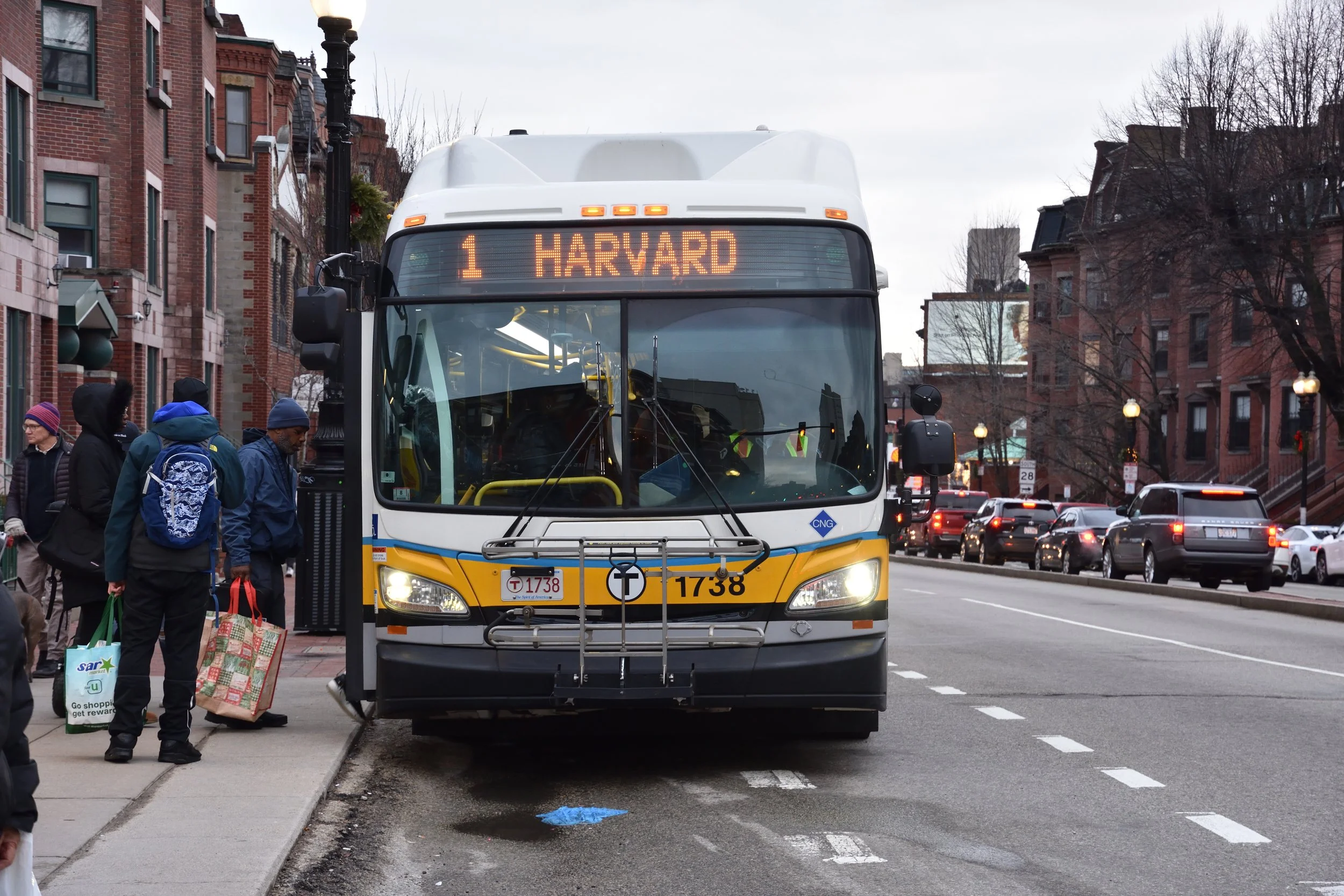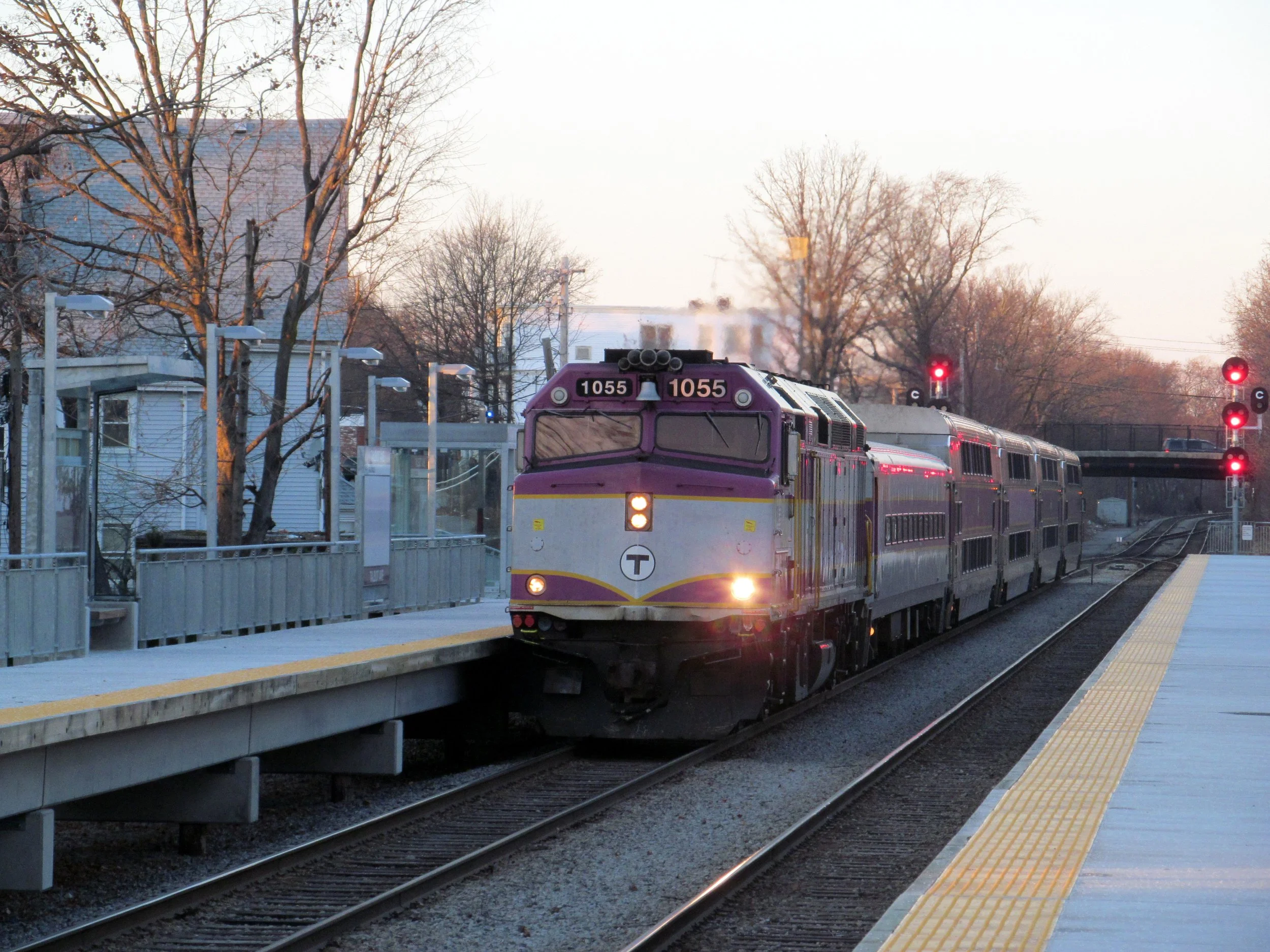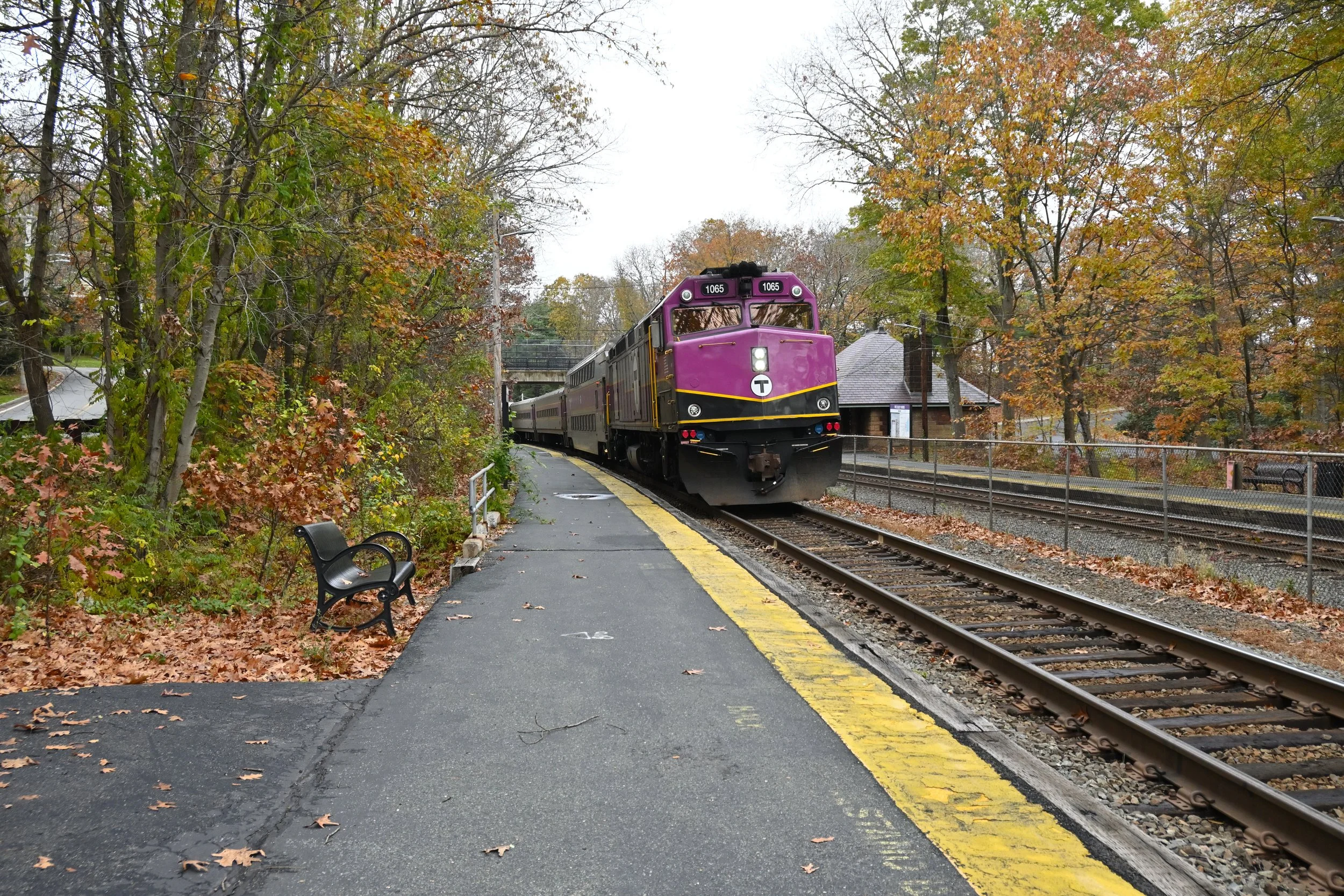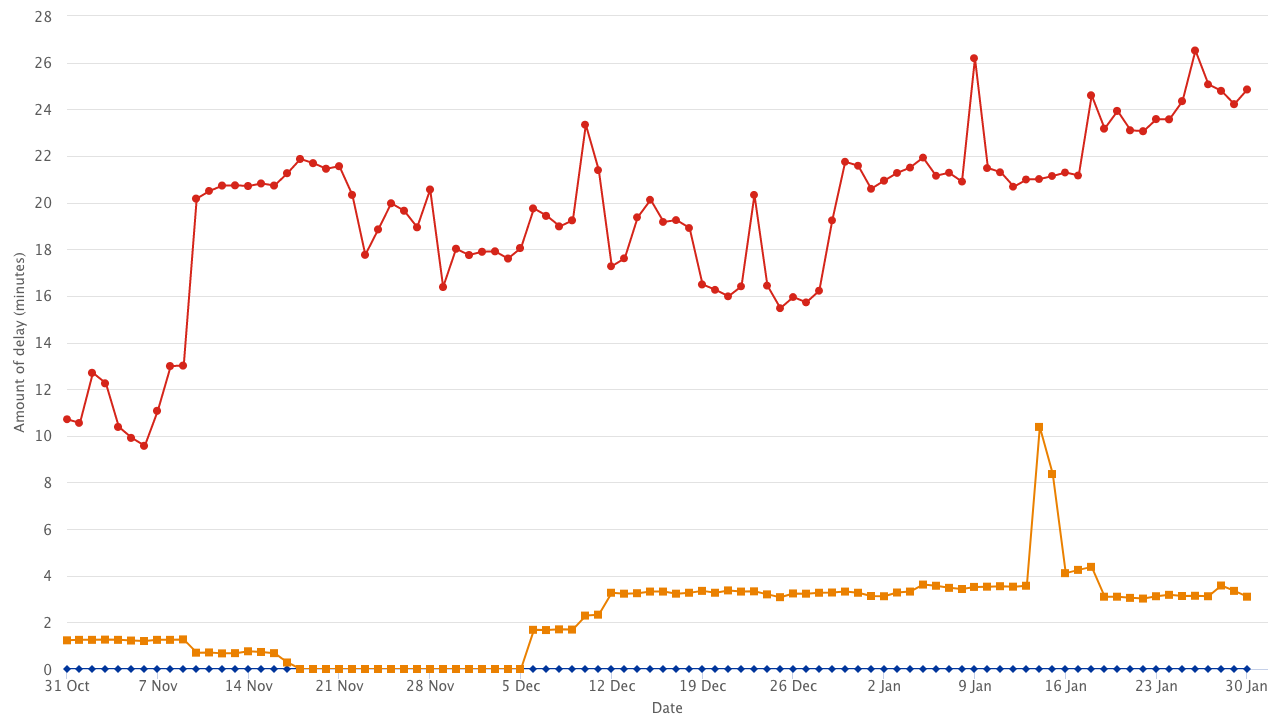After eight months of tracking slow zones, we’ve decided to make some changes to our calculation methodology. These changes are going live today, and we’re excited to share them with you. What follows is an in-depth description of what we changed.
Media Statement: Orange Line Shutdown/Building A Better T 2022
Action Alert: ⚡🚉 What's Going On With The Service Cuts & What You Can Do About It
MBTA Service Reductions: Take Action!
What Happened?
As of Monday, June 20th, 2022, the MBTA has cut service on the Orange, Red, and Blue lines, running Saturday service schedules on all three lines on all weekdays for the rest of the summer, with the exception of the July 4th holiday.
What does this mean?
Longer waits, more crowding on trains, and more inconvenience for riders.
Why did this happen?
These changes come as a result of Federal Transit Administration emergency directives, aimed at remedying long-standing and unsafe conditions at the MBTA.
Here’s a list of actions you can take immediately to help address the deep-seated issues driving these disruptions, as well as some deeper background on what’s happening and how we got here.
What Can You Do About It?
As a rider, there are several ways that you can make a difference. Talk to your elected officials, tell the MBTA Board this week that you want a plan and a promise for a full return to service, and reach out to your local government to see how they can help support the MBTA.
Talk to your State Representatives and Senators. Reach out to your elected officials on Beacon Hill and make it clear that there are many reasons the MBTA needs more dedicated, reliable, and predictable operating funding, and that there are several actions the legislature can take to achieve this. Here’s a list of helpful talking points:
Reasons the MBTA Needs Stable Funding
MBTA needs operating funds that can be designated only for operating expenses, preventing the Authority from raiding the Operations department for Capital projects - this money is needed to:
pay operators more and retain staff
compete with other transportation providers offering higher pay and better starting conditions
bring a large pot of money to the bargaining table with the unions in order to drive up wages for new employees
build up its internal HR department and simplify the hiring process in order to speed up rate of hiring
pay for a drastically increased preventative maintenance program
pay for training and retention of employees
The MBTA needs stable and increased funding overall
so that important priorities such as capital and operations do not need to be in conflict with each other. Formerly, the MBTA often shifted capital dollars to fill operating budget gaps in previous years. However lately, the inability to hire staff has meant that the T has moved operating funding to fund capital projects. Neither is ideal.
that matches the fact that the region is growing and increased spending is necessary to provide high-quality, safe, and reliable service
Tools to Improve MBTA’s Fiscal Situation
Relieve the MBTA of the costs of providing expensive but statutorily required paratransit services ($130M in savings annually)
Relieve the MBTA of the remaining debt, both interest and principal, from the Big Dig. These costs were incurred by mitigations for the highway project - it should be the responsibility of the Commonwealth to pay for them.
Set aside $1 billion in funds from the current massive budget surplus and flush rainy-day fund for the MBTA, dedicated to addressing FTA directives
The Fair Share Amendment, while necessary, is not guaranteed to pass, will not generate enough funds fast enough, and is not sufficient to meet all of our transportation needs.
The Infastructure Investment and Jobs Act (Bipartisan Infra Bill) is a welcome increase in available federal funding, but it is nowhere near enough. The IIJA funds are expected to last just 5 years and the programs are super competitive.
Advocate for labor and workforce development
Tell your municipal leaders, councilors, and representatives that they should support MBTA labor and workforce development efforts - emphasize the importance of building a robust and resilient workforce, and encourage them to partner with the MBTA to drive recruitment efforts.
Easy Action Item!
Tell the MBTA Board: Full Service by Labor Day
Send public comment to publiccomment@dot.state.ma.us before June 22nd to make sure that the MBTA Board Meeting on June 23rd hears your voice. You can also leave a voice message at 617-222-3337 by midnight tonight.
Demand that the Board commit to restoring service by Labor Day, and that the MBTA present to the public a comprehensive plan to restore full service by Labor Day.
Background Information
What’s Happening
Since April 14th, the Federal Transit Administration - the federal agency responsible for regulating public transportation nationwide - has been conducting a Safety Management Inspection of the MBTA. This inspection is taking place because of the series of accidents, injuries, and fatalities that have taken place in the recent past on the MBTA’s system. On Wednesday, June 15th, 2022, the FTA issued a series of special directives - emergency orders for immediate action, issued prior to the completion of the inspection - to the MBTA and the Massachusetts Department of Public Utilities, the state department responsible for regulating public transportation.
One of these directives in particular called out the MBTA for severe understaffing of its Operation Control Center (OCC), the office responsible for the safe and orderly operation of the transit system. Some dispatchers were working 20-hour shifts multiple days in a row, with only 4 hours of rest between shifts - clearly an unsafe situation. The directive called for immediate increases in dispatcher staffing, along with a host of other safety improvements. On Friday, June 17th, the MBTA announced the service cuts that are now in effect, reducing the number of trains in operation at any given time and reducing the burden on dispatchers at the OCC.
This is primarily a funding issue, but it is also a matter of priorities and management - the MBTA has shoveled money into much-needed capital investments, but it has done so frequently at the expense of operations expenditures. Earlier this year, the current MBTA board transferred almost half a billion dollars from Operations to the capital budget - money that could have gone towards improved operator wages, a more robust HR department, or a beefed-up OCC. The end result is an MBTA that is unable to maintain safe operations and a safe system.
How We Got Here
A combination of factors have brought us to this point: insufficient operating funds, mismanagement, the pandemic, and a fundamental lack of institutional capacity.
The MBTA has consistently been starved of operating resources by a legislature unwilling to raise revenue and an administration that isn’t interested in providing reliable and frequent service. Beacon Hill has kept the MBTA Operations budget allocation flat since Fiscal Year 2016, essentially a decline in real terms relative to inflation. The MBTA is also burdened by debt, with hundreds of millions of dollars in debt service each year constraining the operations budget. Some of this debt is state debt related to the Big Dig, transferred to the MBTA by the legislature at the turn of the century. The aforementioned transfers from Operations to Capital have been regular features of budgets in the recent past, and reflect an administration more interested in shoveling money out the door than in delivering high-quality services. All of these factors contribute to cash-strapped operating budgets that make it difficult for the MBTA to offer higher wages and retain higher staffing levels.
These constraints also affect the Collective Bargaining Agreements that the MBTA reaches with labor - due to the limited budget, the MBTA is unable or unwilling to offer enough to the union to drive up starting wages for new workers through the negotiation process. As a result, the starting pay and benefits for a new bus or rail operator are far worse than those for existing operators. The wages are not even competitive with starting wages for bus operators elsewhere, such as at the Pioneer Valley Transit Authority or frequent MBTA contractor Paul Revere Transportation. New hires at the MBTA are only guaranteed 30 hours of work per week, for uncompetitive wages, and their schedules are determined by a seniority system that almost guarantees split shifts, odd hours, and inconvenient work locations.
COVID has also had an impact, and the booming economy and inflation mean that the MBTA now has to fight for workers where previously they held lotteries to distribute in-demand job positions. The MBTA has not been given the resources to compete for labor effectively, and indeed has continued to transfer money out of the Operating budget instead of investing in higher wages and better working conditions. The MBTA’s byzantine hiring process places extreme loads on an already understaffed HR department. This is a fundamental issue of administrative capacity, which prevents the agency from hiring workers quickly and alleviating shortages. In addition, due to a need for specialized agency knowledge, some positions, such as dispatchers, are only promoted from within the ranks of existing operators, limiting the number of available candidates. This means that a shortage of operators will inevitably lead to a shortage of dispatchers, which leads to unsafe operations and more accidents. These factors, combined with federal mandates for drug testing eliminating users of marijuana (which is legal in Massachusetts) from the pool of applicants, mean that the MBTA continues to struggle for workers at a time when their services are most needed.







